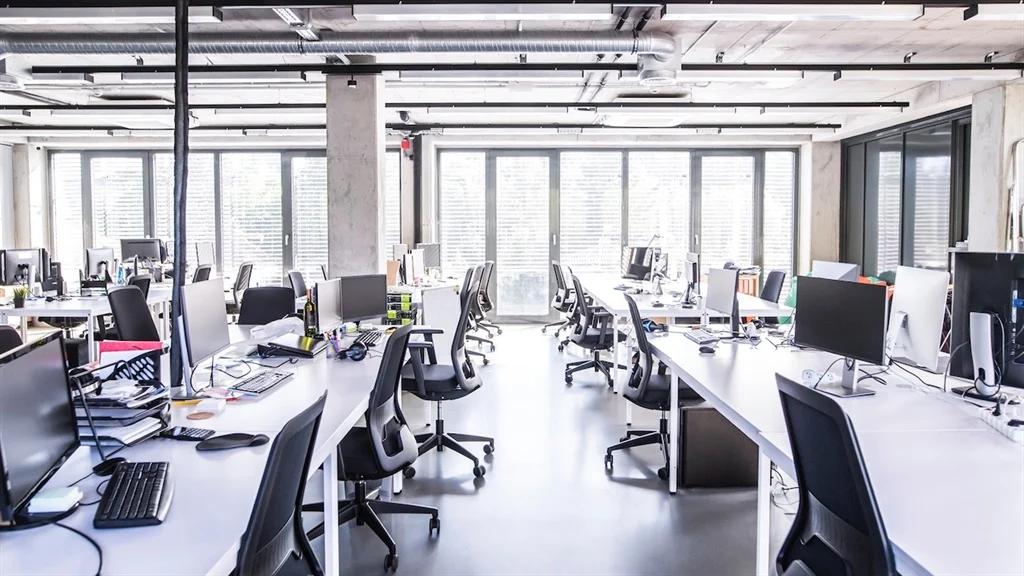Demand for office spaces in the second quarter of 2022 more than doubled with the easing of quarantine restrictions, increased mobility and efforts for the economy to return to pre-pandemic levels.
Because of the easing of restrictions and enhanced mobility of workers, the demand for office spaces in the second quarter has more than doubled to 255,000 sq. m. from end March. This is the highest since the pandemic forced workers to stay and work from homes in 2020.
Leechiu Property Consultants said the office segment remains resilient.
Mikail C. Barranda, director for commercial leasing of the property firm, told an online news briefing on Wednesday that “we have a healthy pipeline of live transactions of 451,000 sq.m.”
Lease transactions have reached 379,000 sq.m. this year, almost 70 percent of the full-year take-up in 2021, Leechiu reported.
Outsourcing companies drove the demand for office spaces this quarter, accounting for 42 percent or 107,000 sq.m., Barranda told Business World.
Several outsourcing companies shed office spaces at the height of the pandemic that has killed 6.4 million people worldwide, as workers shifted to working from home.
Office demand in 2020 sank to 381,000 sq.m. from 1.7 million sq.m. in 2019 when the world was still coronavirus-free, according to data from Leechiu. Last year, it was 539,000 sq.m.
Leechiu earlier said office space demand would pick up as lockdown restrictions ease and many companies issue back-to-office orders.
BPO sector
The business process outsourcing industry was worth $361 billion in 2020, according to the World Bank.
The sector contributes almost $30 billion to the economy each year, and about 1.3 million Filipinos were employed in more than 1,000 outsourcing companies in 2019, according to Nexford University.
The Philippines holds 10-15 percent of the global BPO market and its services are oriented to its former colonial power, the US, and also serve Europe and nearer neighbors Japan, New Zealand and Australia, it said.
“All the leasing activities in the past three months, from many new captives and companies doing business here for the first time, tell us that outsourcing to the Philippines continues to be a reliable solution for companies in the West fighting an impending global recession,” he added.
POGOs
On the other hand, vacant office spaces rose by 63 percent to 170,000 sq.m. as many of Philippine Offshore Gaming Operators (POGOs) — mostly Chinese gambling companies that operate online — were shuttered. These companies used to occupy 64,000 sq.m. of these spaces, Leechiu said.
“Continued POGO contractions indicate fluidity in this industry,” Barranda said.
He said 18 percent of office spaces in Manila, the capital and nearby cities were vacant, with Bonifacio Global City (BGC) in Taguig and Makati City both having “manageable vacancies” at 12 percent and 14 percent, respectively.
Meanwhile, capital values and interest in key business districts increased past pre-pandemic levels, particularly in BGC and Filinvest City in Muntinlupa.
Filinvest City reported the highest growth rate among business districts in the capital region with a compound annual growth rate (CAGR) of 20 percent over a six-year period.
Residential segment
In the residential segment, condominium sales rose by 54 percent.
“Demand for most segments posted significant growth as developers offered extended and flexible payment terms and investors purchased residential units to lock in current prices,” Roy A. Golez, director for Research and Consultancy at Leechiu, told the same briefing.
He added that with rising consumer prices, interest rates are likely to increase and affect the market.
“Such a development may impact not only the lower middle residential condominium segment but also the middle-income category, which is now also being confronted by looming economic headwinds,” Golez said.
“This chain of events, nevertheless, has not dented residential lot prices, especially Southern Mega Manila properties which have become more accessible through new expressways and other infrastructure,” he added.
Real estate continues to grow
Leechiu said Philippine real estate would continue to grow amid healthy capital values, avid residential investors and an office market firmly supported by the information technology-business process outsourcing sector.
“As the economy opens up, we are confident that transactions especially in the office sector will pick up, driven by firms that will use outsourcing in tough times,” Barranda said.
“The IT-BPM sector is the unique Philippine industry that does well when everyone else in the world is challenged to remain viable,” he added.
Tags: #officespaces, #realestate, #BPOs, #POGOs
